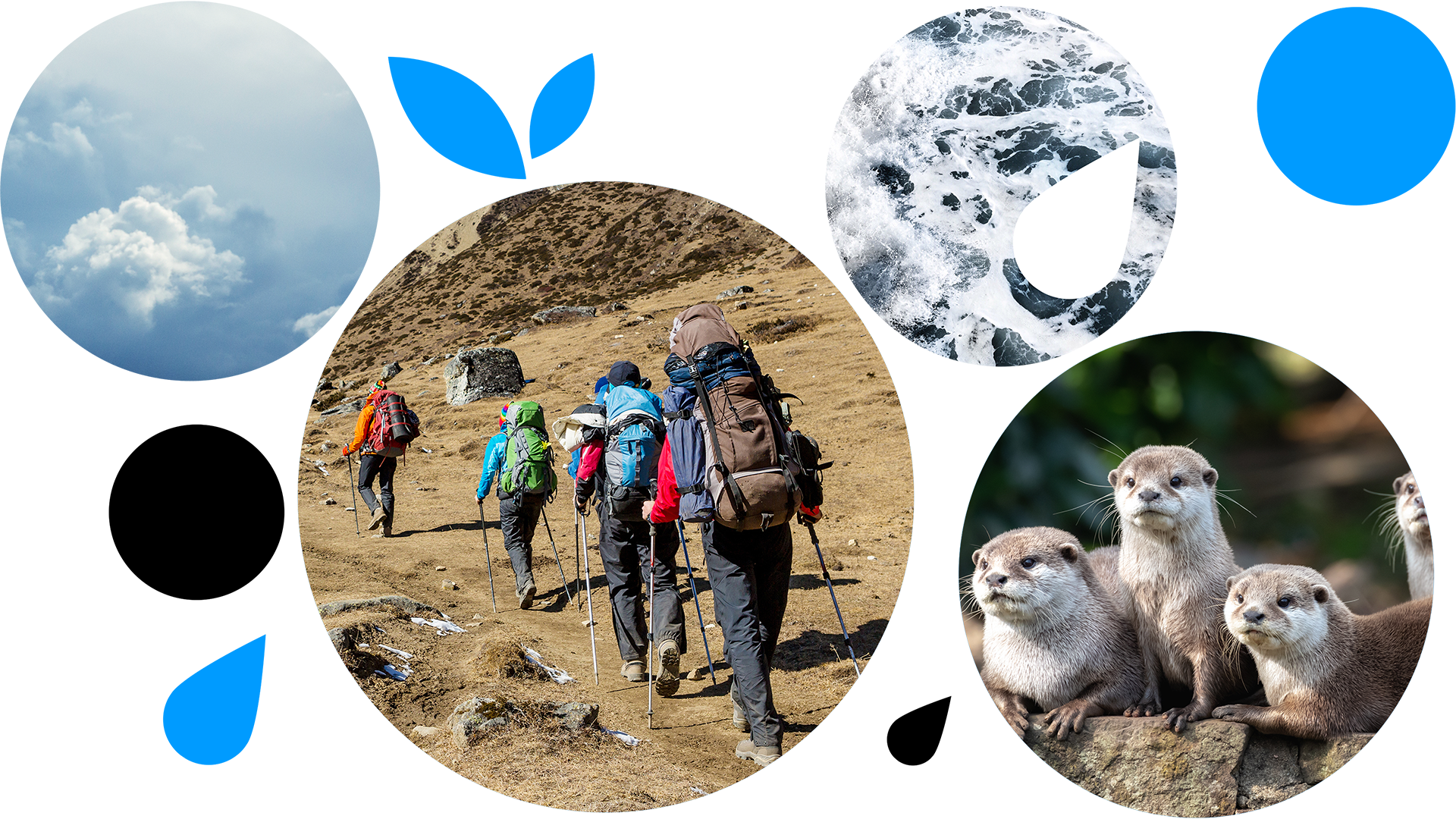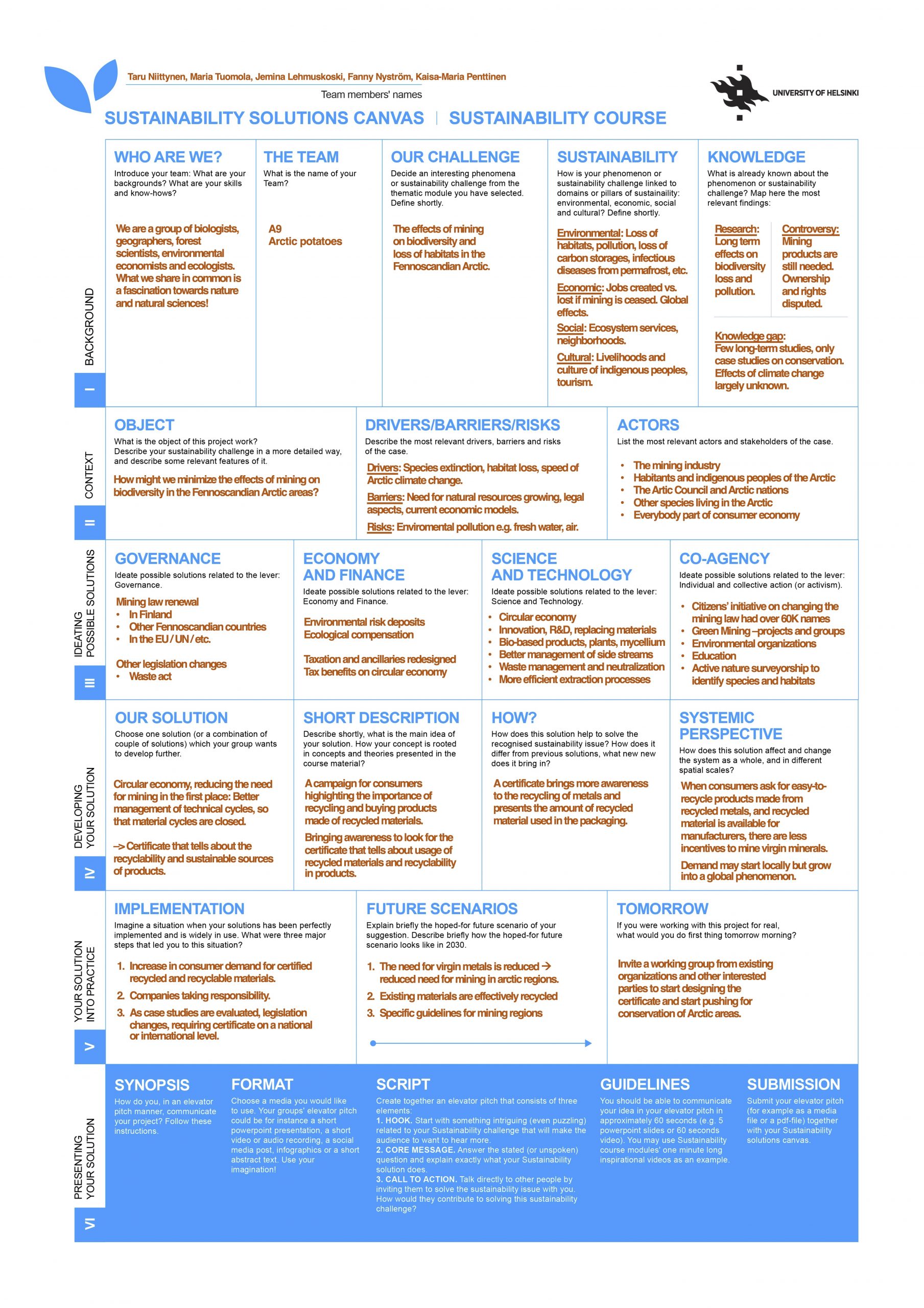
Group A02: Broadcasters of Biodiversity Knowledge
Object: We want to make science on biodiversity more accessible and understandable for the general public, and connect people to the science, two-ways communication. The power of the people, they are the ones voting → creating new norms? Channel/tool.
Short description: Main goal of the platform is to influence the values of the public to a more biocentric and interconnected worldview with nature. So that their decision making would be based on the knowledge of its influences on biodiversity. Protecting biodiversity, taking care of and respecting nature as the important values we want to promote through the platform. The platform could work as a motivational and informational policy instrument. The platform calculates an biodiversity value index for political and consumption choices.
(click canvas to enlarge)
Elevator pitch:
Have you ever thought about how much biodiversity there is around you? You can see it in your own garden, the nearby forest and even in the ground on which you walk. But have you ever had a thought about what biodiversity actually is and how you affect it in your everyday life?
With our new platform you can find out! It’s a platform that invites you to cooperate with the scientific community, observe the biodiversity around you and send your data to the global knowledge base.
The platform provides you with the newest and most interesting research on biodiversity on both local, regional and global scales, and it even gives you an opportunity to calculate your own ”global biodiversity value index”, with which you can calculate the effects that your everyday life has on biodiversity!
In order for us all to be able to appreciate the richness of nature around us, it is important for us all to see what it actually is! Use our platform and find out just how important biodiversity is to your life, how your actions affect it, and most importantly, how you can make better choices to help it in your everyday life!
Group: A09 Arctic Potatoes
Object: How might we minimize the effects of mining on biodiversity in the Fennoscandian Arctic areas?
Short description: A campaign for consumers highlighting the importance of recycling and buying products made of recycled materials. Bringing awareness to look for the certificate that tells about usage of recycled materials and recyclability in products.
(click canvas to enlarge)
Elevator pitch:
(click image to enlarge)
Other Groups (unpublished assignments)
These project assignments are not public, but if you’re a Sustainability Course (SUST-001) Autumn 2021 student, you may access them in Mooc using the links below:
A03: Solving plastic pollution in oceans
A04: Kalamiehet (Solving ocean overfishing)
Sources
A02:
Clayton, S., Colléony, A., Conversy, P., Maclouf, E., Martin, L., Torres, A.-C., Truong, M.-X. and Prévot, A.-C. (2017), Transformation of Experience: Toward a New Relationship with Nature.
CONSERVATION LETTERS, 10: 645-651. https://doi.org/10.1111/conl.12337
Vidal, J., 2019. WHY INDIGENOUS PEOPLES AND TRADITIONAL KNOWLEDGE ARE VITAL TO PROTECTING FUTURE GLOBAL BIODIVERSITY. Ensia.com. [23.11.2021] (https://ensia.com/features/indigenous-knowledge-biodiversity/)
Jolibert, C. & Wesselink, A. 2012. Research impacts and impact on research in biodiversity conservation: The influence of stakeholder engagement. Environmental Science & Policy, Volume 22, 100-111. https://doi.org/10.1016/j.envsci.2012.06.012.
Mikael Karlsson, M. & Edvardsson Björnberg, K., 2020. Ethics and biodiversity offsetting. Conservation Biology, 35(2), 578–586. DOI: 10.1111/cobi.13603
Harvey Locke, Erle C Ellis, Oscar Venter, Richard Schuster, Keping Ma, Xiaoli Shen, Stephen Woodley, Naomi Kingston, Nina Bhola, Bernardo B N Strassburg, Axel Paulsch, Brooke Williams, James E M Watson, Three global conditions for biodiversity conservation and sustainable use: an implementation framework, National Science Review, Volume 6, Issue 6, November 2019, Pages 1080–1082, https://doi.org/10.1093/nsr/nwz136
Perrings, C., Folke, C., & Mäler, K.-G. (1992). The Ecology and Economics of Biodiversity Loss: The Research Agenda. Ambio, 21(3), 201–211. http://www.jstor.org/stable/4313929


